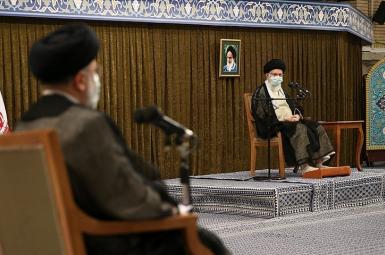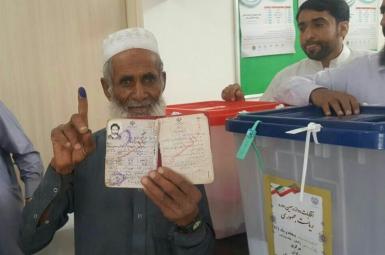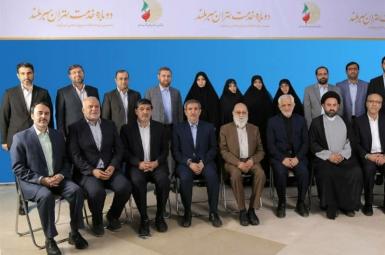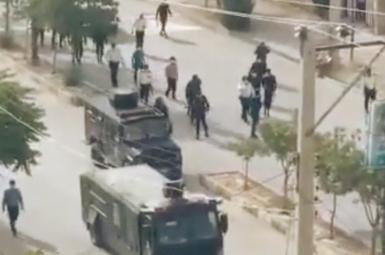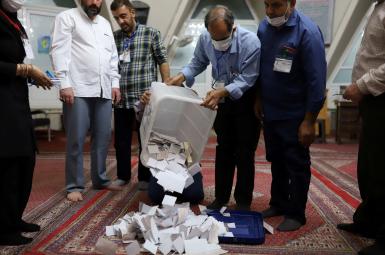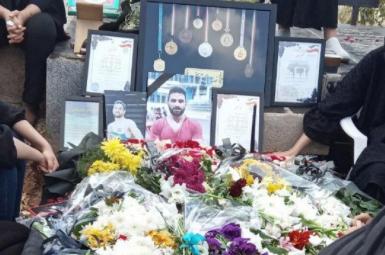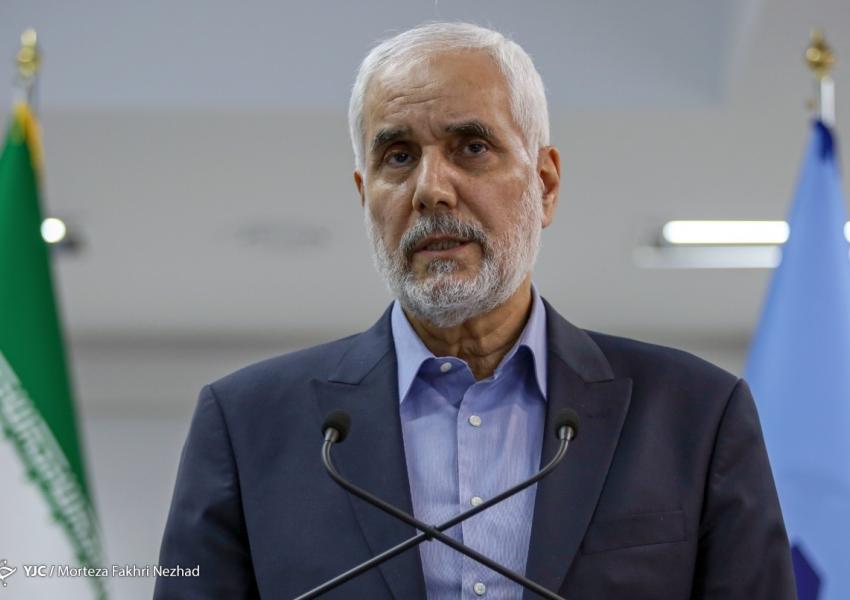
Two Candidates Drop Out Of Iran Race, A Third Hints He Might Do Too
Mohsen Mehralizadeh, a reformist candidate in Friday’s presidential election, and hardliner Alireza Zakani, head of the parliament's research center, announced their withdrawal from the race Wednesday, while Mohsen Rezaei (Rezaee) indicated that he might also pull out.
Mehralizadeh's campaign spokesman Ali Tajernia Wednesday morning said a letter announcing his move had been submitted to election authorities and promised a statement shortly. Some reformists may now look to former central bank governor, Abdolnaser Hemmati, a member of the center-right Kargozaran-e Sazandegi (Executives of Construction) party, whom some Iranian websites now describe as a reformist.
The Reforms Front, an umbrella grouping including Kargozaran, issued a statement Wednesday saying it would “not prevent” any of its member parties or politicians from supporting any candidate. This was some days after the Front, peeved over the exclusion of its favored candidates by the watchdog Guardian Council, decided not to back anyone after a majority vote in its assembly to support Hemmati failed to attract the necessary two-thirds majority.
Rezaei, secretary of the Expediency Council and former Revolutionary Guards commander, Wednesday cancelled nationwide campaign meetings and a tweeted a hint(link is external) that he might leave the race after a speech planned for Supreme Leader Ali Khamenei Wednesday evening.
Rezaei − who has said he would appoint to his government presidential hopefuls not allowed to run by the Guardian Council, including Ali Larijani, and who has floated the idea of referendums on contentious matters − had previously insisted he would not stand down.
Over 200 members of parliament on Wednesday issued a statement urging principlist candidates to withdraw to boost Ebrahim Raeesi (Raisi), the chief justice widely seen as the election front-runner. Hossein Shariatmadari, editor of the principlist flagship newspaper Kayhan, had previously warned that a split principlist vote could enable Hemmati to take the contest to a run-off ballot.
The latest poll, taken June 13-14 after the third and final presidential debate, by the government-affiliated Iranian Students Polling Agency (ISPA) put Raeesi well in front with over 60 percent support among those saying they would vote or were likely to vote. He was followed by Rezaei on 8 percent and Hemmati at under 4 percent. At or around 3 percent were former nuclear negotiator Saeed Jalili, first deputy speaker of parliament Amir-Hossein Ghazizadeh, Alireza Zakani (3%). After initial denials early on Wednesday Zakani also withdrew from the race, effectively boosting Raeesi's position.
IPSA found support for Mehralizadeh did not exceed 1 percent. A telephone survey carried out for Iran International TV after the third debate with a smaller sample showed no support at all for the former vice-president.
Jalili’s campaign spokesman Morteza Firouzabadi Wednesday said there were no indications he would withdraw. Some pundits have said Jalili and Hemmati might both attract "shy votes" on Friday because supporters have hidden their intentions from pollsters.
Jalili's supporters say he is a better choice than Raeesi because he has a detailed plan to run the country. Jalili, who claims he had a shadow opposition monitoring the Rouhani administration over the past eight years, has opposed Iran’s 2015 nuclear agreement with world powers and accession to the global anti money-laundering watchdog, the Financial Action Task Force. During the debates Raeesi said he would accept the revival of the 2015 nuclear deal, currently being discussed in Vienna with world powers, if it benefitted the Iranian people.
Mehralizadeh, who was a vice-president and head of the Physical Education Organization in the second administration (2001-05) of reformist president Mohammad Khatami, in one presidential debate scorned Raeesi's education as mostly seminary and suggested this ill-equipped him to run the country.

